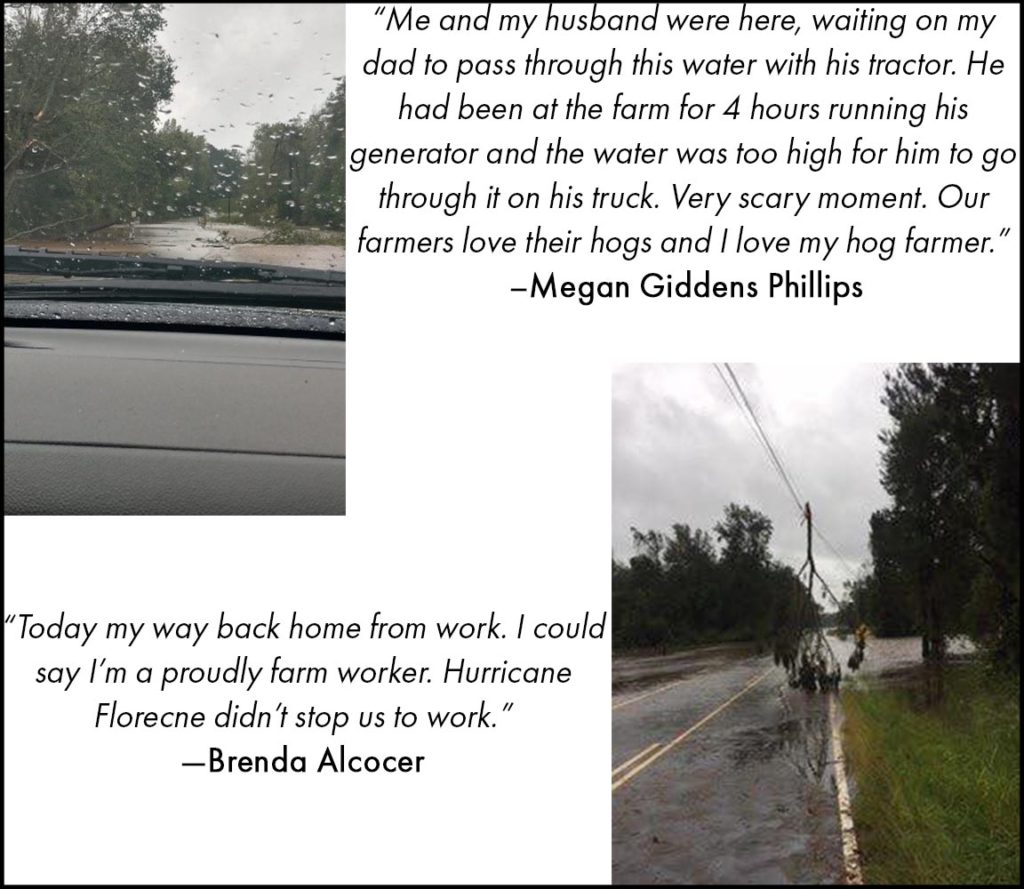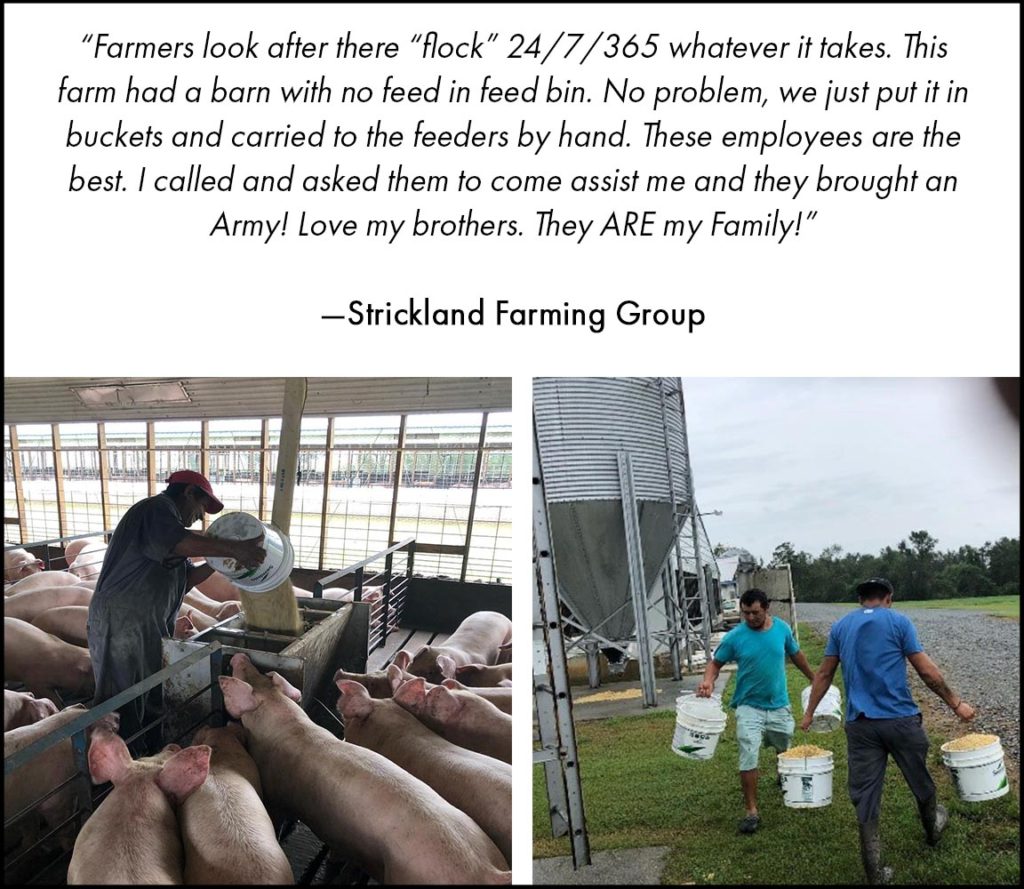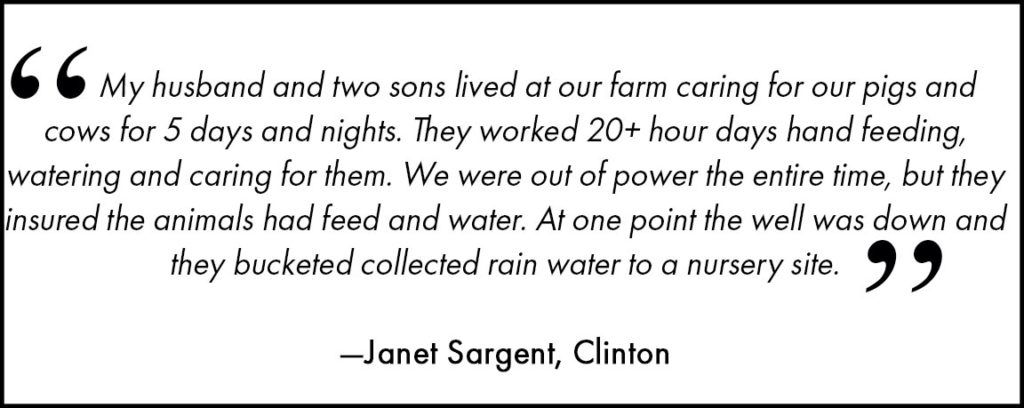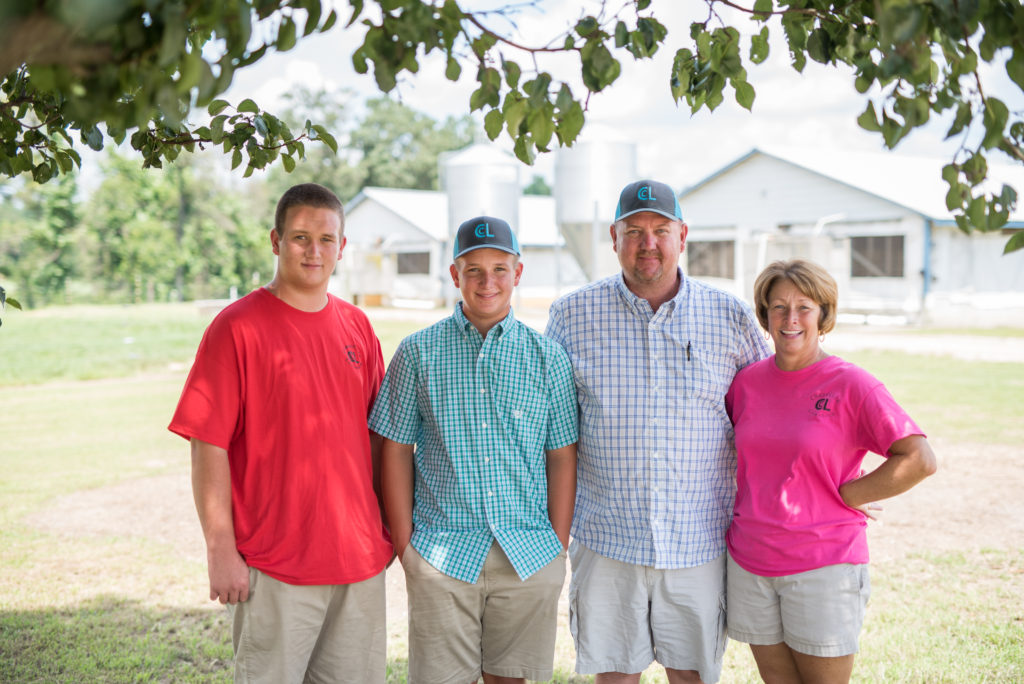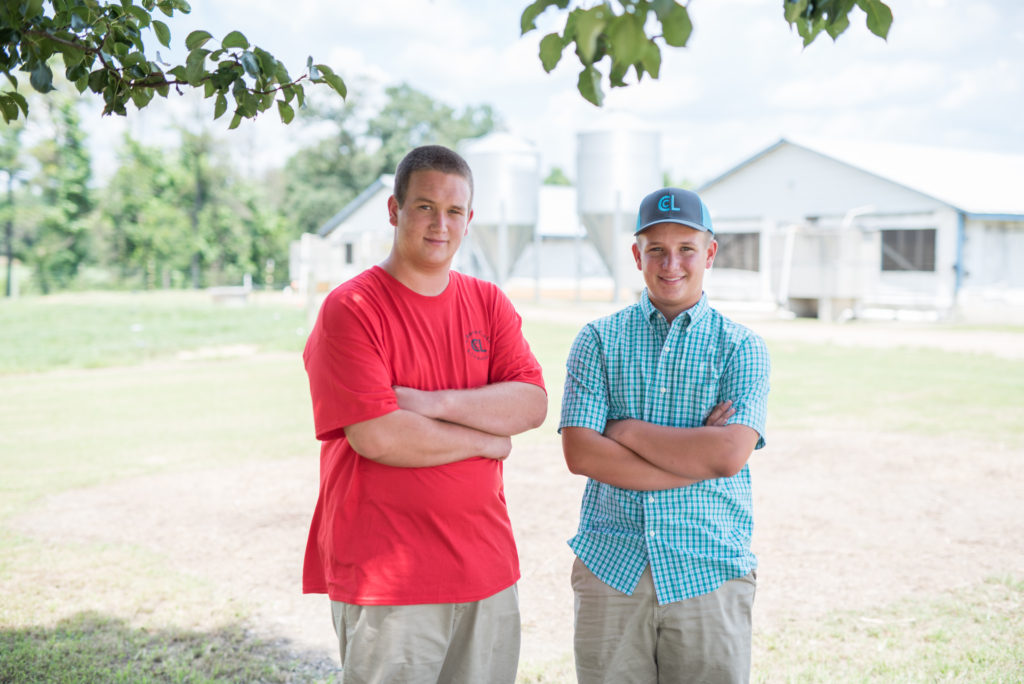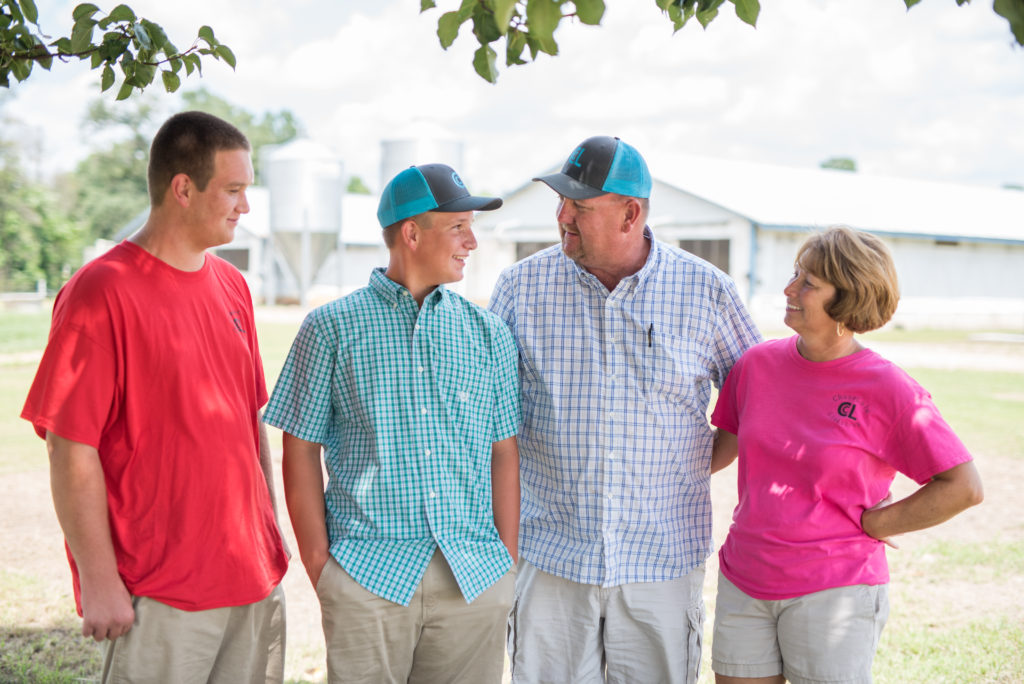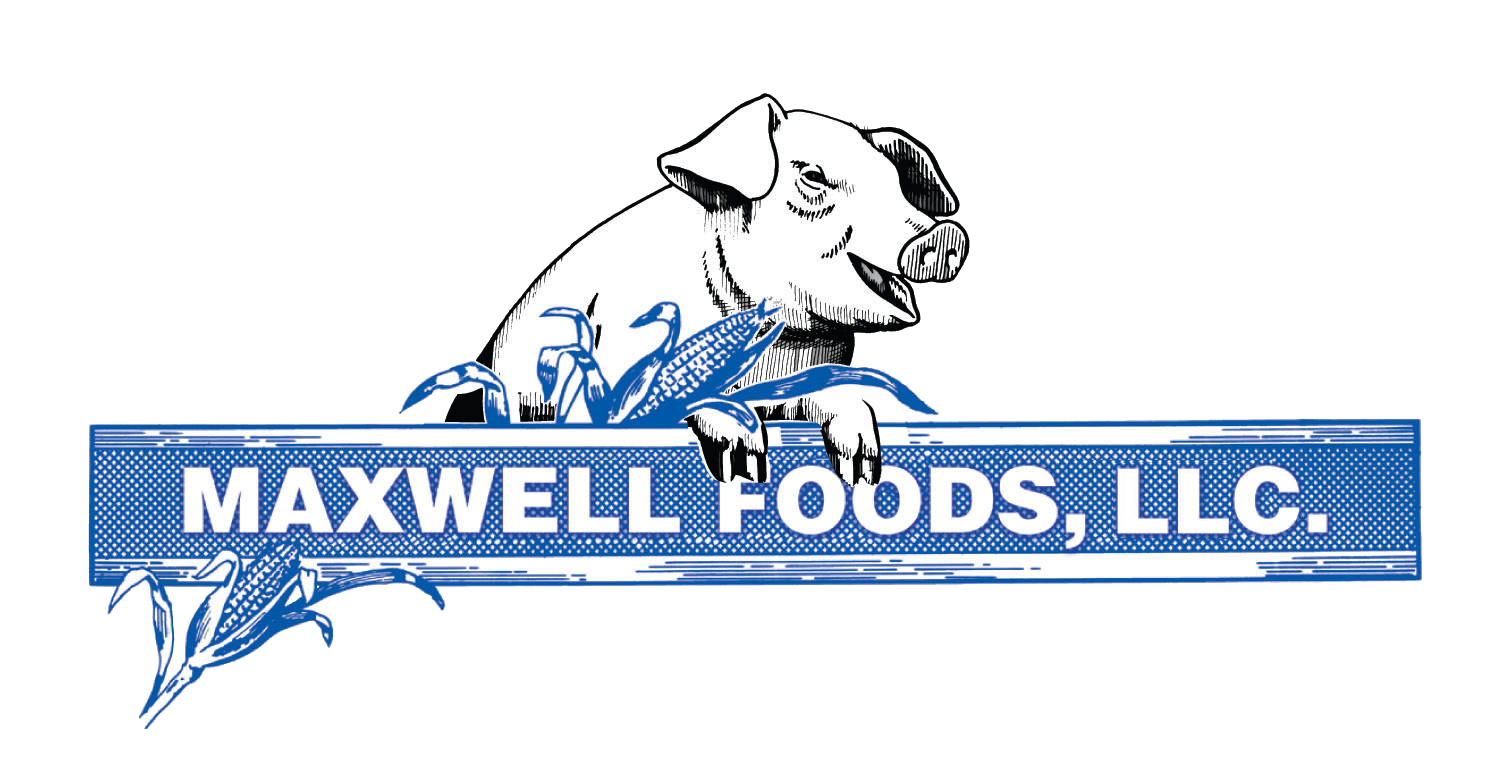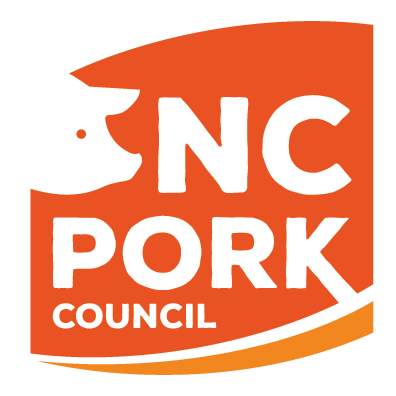Hog Nuisance Lawsuit Gag Order Lifted by Court of Appeals
Many are aware of the nuisance lawsuits that have been brought against Smithfield Foods and family farmers. During the course of these court cases, a gag order was placed on “all parties and their lawyers, representatives, and agents, as well as ‘all potential witnesses.’” It prevented those afore mentioned from giving any extrajudicial statement or interview to the media or public communications media.
The gag order was put into effect on June 27, 2018. Today, the United States Court of Appeals for the Fourth District filed that the petition challenging the gag order has been granted. The gag order, placed by Judge Earl Britt has been removed.
The gag order was put in place because of the high amount of publicity the trials were receiving and the concern that the publicity would prevent an impartial jury. However, as the recent Court of Appeals filing says, publicity often comes with trials, especially those in which the public has an interest. The frustration felt by many organizations, including NC Farm Families, regarding the inability to respond or freely communicate about ongoing trial events was keen. The frustration was especially felt when it seemed that the publicity was very one-sided. We are grateful that lifting the gag order will allow a more complete story to be told.
Publicity also does not prevent an impartial jury. As the filing states, “an impartial jury, moreover, need not be wholly unaware of information—including potentially prejudicial information—outside the record. ‘Prominence does not necessarily produce prejudice, and juror impartiality . . . does not require ignorance.’ Skilling v. United States, 561 U.S. 358, 381 (2010)(pg. 15).”
There were many reasons why the gag order was rescinded including violating First Amendment Rights and failure to be narrowly tailored were among the foremost reasons. Although, not being able to exercise First Amendment Rights is difficult enough, the gag continued to make matters worse by not being narrowly tailored. The gag order failed to be specific and instead made sweeping coverage. When the district court was asked for clarification, the response was to just figure it out and that it should be self-explanatory.
NC Farm Families is grateful for this decision, as are many others. The Court of Appeals said it well:
“All these people care. This case is about their lives and their livelihoods. Whatever differences the parties and their supporters have, they possess in common a passionate First Amendment interest in debating their futures. It seems very wrong that a court would take that from them.” (pg. 23)
To read the full filing click here: 4 Circuit Ruling
The next court case for the nuisance lawsuits is set for November 13.
Our Story: The Farmer's Side of Hurricane Florence
There have been articles, news reports, and don’t forget the countless social media posts that focus around Hurricane Florence. Beyond the many memes about bread and milk flying off the shelves, and heart-breaking reports of devastation the storm brought, there were a great deal of stories spread about farmers. Unfortunately, the story that was told was often neither positive nor accurate.So, here is the story of the farmer. This is a timeline of events from Sept 7-present day told by farmers. This is our story.
Sept 7—North Carolina declares state of emergency in anticipation of Hurricane Florence. Governor Cooper waived transportation restrictions for farmers to allow them to harvest more quickly.
Sept 8—News Reports of Hurricane Florence making landfall in NC increase.Farmers continue to work daily in the field. They begin to pickup the pace in harvest and keep a constant eye on the weather. Hog farmers continue to manage lagoons just as they have the rest of the year. 20,000 pigs in high-risk areas are moved to higher ground.
Sept 11—Florence is a Category 4 and is expected to make landfall by Thursday morning.Farmers and friends come together to help get corn crops in before rain and wind destroy the crops. They work well into darkness. After all, a farmer’s work doesn’t end when the sun goes down. It ends when the job is done.
Sept 12—The storm has weakened but is still expected to cause serious damage and has now shifted south.Harvest continues across the state. For many it will be the last day they can get any crops in. Many farmers don’t have time to stop and eat, so it’s meals on trucks, tractors and combines.Truckers are delivering feed to farms, and farmers and lineman alike are preparing for Florence.Generators are getting primed and anything loose is getting tied down.
Sept 13—Rains begin to fall. Coastal cities begin to see flooding and wind damage. Florence is here.Any and all harvest comes to a stop as rain begins to fall. Taking care of animals continues as usual. The goal is to keep them comfortable and oblivious to any storm outside.
Sept 14—Florence camps out over NC, moving only 2mph. Severe flooding starts and at least 5 people have already died. Rain continues to fall.Farmers continue to monitor and care for their animals. Wind has started to cause some damage, but on the whole, all is holding up.
Sept 15—Florence continues to pummel NC. Death tolls rise as well as flooding. Water rescues are prevalent in the eastern part of the state. Farmers are feeling the impact of the storm. Lagoons are filling, but are contained. Some are struggling with equipment malfunction or storm damage. Many are without power and even having personal issues with their own home.Roads begin to flood and washout. Despite road conditions, farmers still brave weather and roads to care for their animals.Many farmers make the choice to just stay at the farm with their animals. It is their home away from home for a few days.For some, their choice to stay would trap them.
Sept 16—Rain continues. Some areas have received more than 30 inches of rain. Flooding has reached historic levels. ommunities across the Carolinas are praying for the rain to stop. Many roads are impassable, making it difficult or impossible to reach farms by vehicle. Farmers do whatever it takes to care for their animals and farm.
Many farmers are also first-responders. Their duties leave them exhausted, but their compassion and heart pushes them onward.
Sept 17—The sun shines on NC, but rivers are expected to crest in the coming days.Nothing has changed for farmers, except that water is coming from the rivers instead of sky. It is all boots on the ground (and in the sky) to get to farms and start fixing damages.
The farmers at this farm in Trenton, NC had a long several days. They did not go home for days, but stayed at the farm. They are keeping the pigs fed and watered. People have come to help. Water has risen to unprecedented heights.
Sept 18—Rivers continue to rise cutting towns off. It is a grim and hard time in NC. Flood waters are rising to historic levels. Farmers are working day and night. Many have lost their homes, but continue to care for their farms.
Sept 19-Present—Disaster in NC is ongoing. People are still in danger, and floodwaters are still rising. Farmers continue to work to care for their animals, battle generators, and manage lagoons. They are tired. Tears have been shed, some pigs have died, some lagoons have spilled, and some homes have been lost, but hope is ever present with farmers. They continue to fight.
There is also a sense of pride among farmers. Proud of each other for what they have endured and continue to endure. Despite historic floods, torrential rain, and long days, farmers continue.
They aren’t just proud of each other, though. There are many others proud of these men and women too.
Today, you can find farmers at their farms, in their communities, or cleaning up their own homes. If you drive through farm country, you may still have to dodge washed out roads. You may see drowned crops. There may be a person’s house turned inside out with all their belongings in the yard. Things are hardly back to normal.
Media, activists, and others will tell a horror story where Hurricane Florence and farmers are the villains and the public and animals the victims. The past few weeks have indeed been a horror story, but farmers should also be classified as victims. They have endured unimaginable events and faced so much loss.Farmers can also be deemed heroes of the story. They put their animals and others above themselves. They worked hard and even risked their health and lives during the storm. They saved animals. They saved people. They saved the day in some situations.Despite the stories being told, farmers do care. They prepared. They fought. They stayed. This is their story…the true story. It is the story of the farmer and it deserves to be told.
NC Farm Family Faces: A Family Affair
For the Matthis family, farming is a family affair. Everyone has a part to play, and they work together to get things done. When it comes to farming, family is their favorite part about it.
Scott and Melanie Matthis, and their two boys, Chasen (18) and Colbey (15) grow hogs, cattle, turkeys and hay on their Sampson County Farm. Scott grew up on a local farm growing row crops and tobacco. Melanie grew up in the area, but was a "city girl"... that is until she met Scott and came to the farm. She's fell right in and fell in love with the farm life. In 1990, they built two hog houses. Later, they would grow their farm to a total of 6 hog houses, 110 Simmental cattle, and lease a turkey farm. Melanie manages the turkeys while the boys do the cattle, hogs, and hay. Scott works full-time with Prestage Farms as their Cattle Manager. Although gone much of the day, he goes straight to work from one full-time job to another--Cattle Manager to farmer. You could say that he really enjoys the agriculture life.
The apple doesn't fall far from the tree, though. Chasen and Colbey love the farm life too. While Chasen prefers work on the tractor cutting hay and tending to crops, Colbey would rather be working with the animals, especially the pigs. Despite each of the Matthis boys having a favorite aspect of the farm, they are both adept in all areas, pitching in wherever needed. Both can drive a tractor like it is second-nature and both show livestock in 4-H. The two also know how growing up on a farm has helped them.
"I've learned responsibility," said Colbey and Chasen added that "I've developed a strong work ethic thanks to living on a farm."
For their parents, their greatest hope is for their sons to take over the farm one day."Our hope for the future is that our boys will come back and run it. They are the reason that we do what we do," said Melanie.
And what the Matthis family does, is work hard to make sure they are sustainable. They want this farm to last for generations to come. Part of that is to do things the right way and respect their neighbors.
"Being a good neighbor means everything. We live on the land too. We don't want to do anything to harm the environment because we live here," said Scott.
Melanie echoed her husband's sentiments. As a mom raising two boys on the farm, she knows first-hand the importance of doing things the right way.
It isn't always easy on the farm, though. The family could all agree that working 365 days a year with very few vacations or time off isn't easy. Yet, the best and hardest parts about farming are integrally weaved together for the Matthis family. Late nights cutting hay and early mornings caring for animals isn't always fun, but it also allows them to work more together as a family. In the end, it is all worth it.
The Matthis family is committed to farm life and are invested in it. If they aren't working on the farm, you may find them on the road headed to a 4-H livestock show. When Scott isn't working one of his full-time jobs, he is serving on the NC Purebred Angus Board, Simmental Cattle Board, and the Sampson County Cattleman's Association Board. They lead a full life that is filled with agriculture, but at the center of it all is family.Farming is a family affair for the Matthis Family.
Photos by: M. See Creative
Farmkeepers Blog
The Farmkeepers is the official blog of NC Farm Families. It is here that words will flow, our voice will be heard, a stand will be made, and the farm families of North Carolina will be protected. In these posts, we'll set the record straight. You'll see the faces of the families who feed us. Here, you'll receive all the updates and news. It is here that we will fight for farmers and be the keepers of the farm in NC. We hope you'll join us. Follow along on social media and by joining our email list.












